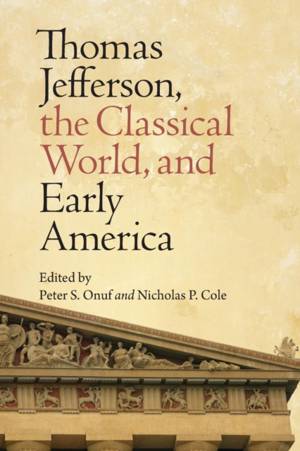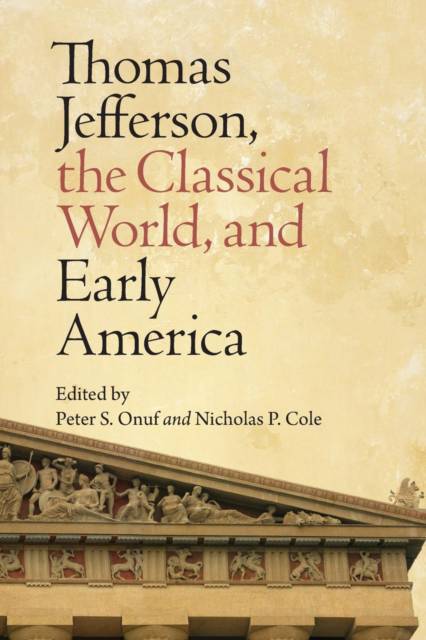
- Afhalen na 1 uur in een winkel met voorraad
- Gratis thuislevering in België vanaf € 30
- Ruim aanbod met 7 miljoen producten
- Afhalen na 1 uur in een winkel met voorraad
- Gratis thuislevering in België vanaf € 30
- Ruim aanbod met 7 miljoen producten
Thomas Jefferson, the Classical World, and Early America
Omschrijving
Thomas Jefferson read Latin and Greek authors throughout his life and wrote movingly about his love of the ancient texts, which he thought should be at the core of America's curriculum. Yet at the same time, Jefferson warned his countrymen not to look to the ancient world for modern lessons and deplored many of the ways his peers used classical authors to address contemporary questions. As a result, the contribution of the ancient world to the thought of America's most classically educated Founding Father remains difficult to assess.
This volume brings together historians of political thought with classicists and historians of art and culture to find new approaches to the difficult questions raised by America's classical heritage. The essays explore the classical contribution to different aspects of Jefferson's thought and taste, as well as examining the significance of the ancient world to America in a broader historical context. The diverse interests and methodologies of the contributors suggest new ways of approaching one of the most prominent and contested of the traditions that helped create America's revolutionary republicanism.
Contributors: Gordon S. Wood, Brown University * Peter S. Onuf, University of Virginia * Michael P. Zuckert, University of Notre Dame * Caroline Winterer, Stanford University * Richard Guy Wilson, University of Virginia * Maurie D. McInnis, University of Virginia * Nicholas P. Cole, University of Oxford * Peter Thompson, University of Oxford * Eran Shalev, Haifa University * Paul A. Rahe, Hillsdale College * Jennifer T. Roberts, City University of New York, Graduate Center * Andrew Jackson O'Shaughnessy, University of Virginia
Specificaties
Betrokkenen
- Uitgeverij:
Inhoud
- Aantal bladzijden:
- 328
- Taal:
- Engels
- Reeks:
Eigenschappen
- Productcode (EAN):
- 9780813934433
- Verschijningsdatum:
- 1/03/2013
- Uitvoering:
- Paperback
- Formaat:
- Trade paperback (VS)
- Afmetingen:
- 152 mm x 229 mm
- Gewicht:
- 485 g

Alleen bij Standaard Boekhandel
Beoordelingen
We publiceren alleen reviews die voldoen aan de voorwaarden voor reviews. Bekijk onze voorwaarden voor reviews.










